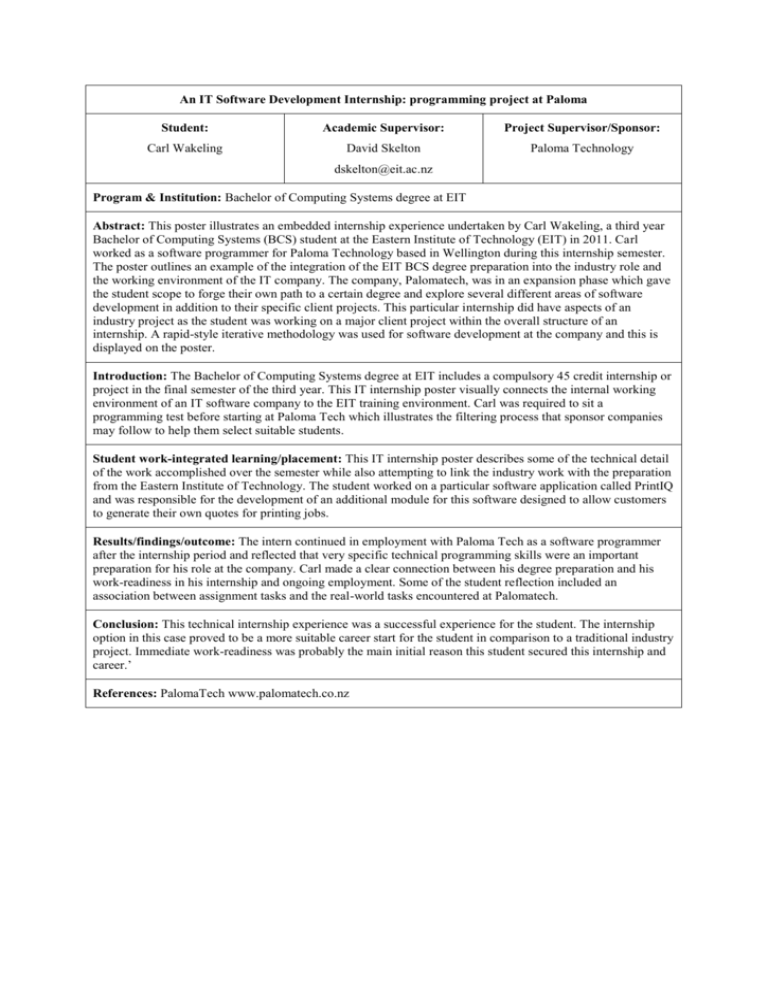Abstract Example
advertisement

An IT Software Development Internship: programming project at Paloma Student: Academic Supervisor: Project Supervisor/Sponsor: Carl Wakeling David Skelton Paloma Technology dskelton@eit.ac.nz Program & Institution: Bachelor of Computing Systems degree at EIT Abstract: This poster illustrates an embedded internship experience undertaken by Carl Wakeling, a third year Bachelor of Computing Systems (BCS) student at the Eastern Institute of Technology (EIT) in 2011. Carl worked as a software programmer for Paloma Technology based in Wellington during this internship semester. The poster outlines an example of the integration of the EIT BCS degree preparation into the industry role and the working environment of the IT company. The company, Palomatech, was in an expansion phase which gave the student scope to forge their own path to a certain degree and explore several different areas of software development in addition to their specific client projects. This particular internship did have aspects of an industry project as the student was working on a major client project within the overall structure of an internship. A rapid-style iterative methodology was used for software development at the company and this is displayed on the poster. Introduction: The Bachelor of Computing Systems degree at EIT includes a compulsory 45 credit internship or project in the final semester of the third year. This IT internship poster visually connects the internal working environment of an IT software company to the EIT training environment. Carl was required to sit a programming test before starting at Paloma Tech which illustrates the filtering process that sponsor companies may follow to help them select suitable students. Student work-integrated learning/placement: This IT internship poster describes some of the technical detail of the work accomplished over the semester while also attempting to link the industry work with the preparation from the Eastern Institute of Technology. The student worked on a particular software application called PrintIQ and was responsible for the development of an additional module for this software designed to allow customers to generate their own quotes for printing jobs. Results/findings/outcome: The intern continued in employment with Paloma Tech as a software programmer after the internship period and reflected that very specific technical programming skills were an important preparation for his role at the company. Carl made a clear connection between his degree preparation and his work-readiness in his internship and ongoing employment. Some of the student reflection included an association between assignment tasks and the real-world tasks encountered at Palomatech. Conclusion: This technical internship experience was a successful experience for the student. The internship option in this case proved to be a more suitable career start for the student in comparison to a traditional industry project. Immediate work-readiness was probably the main initial reason this student secured this internship and career.’ References: PalomaTech www.palomatech.co.nz







